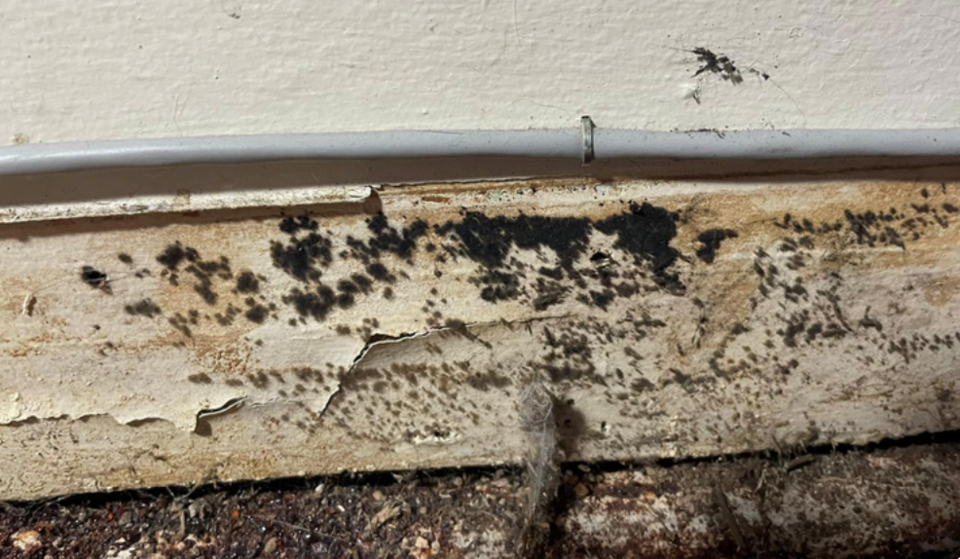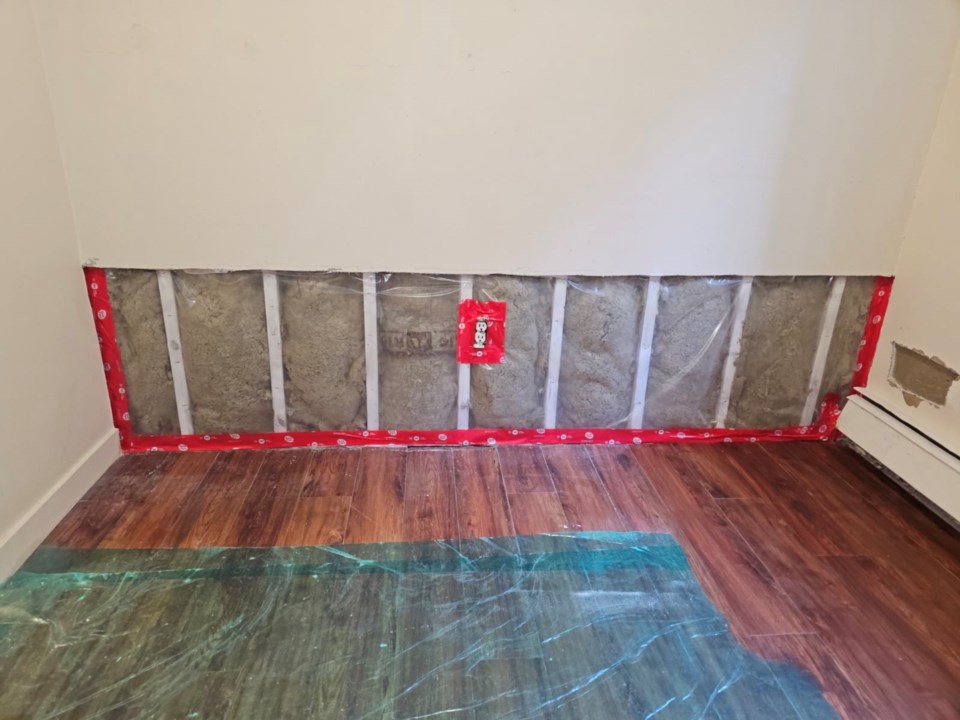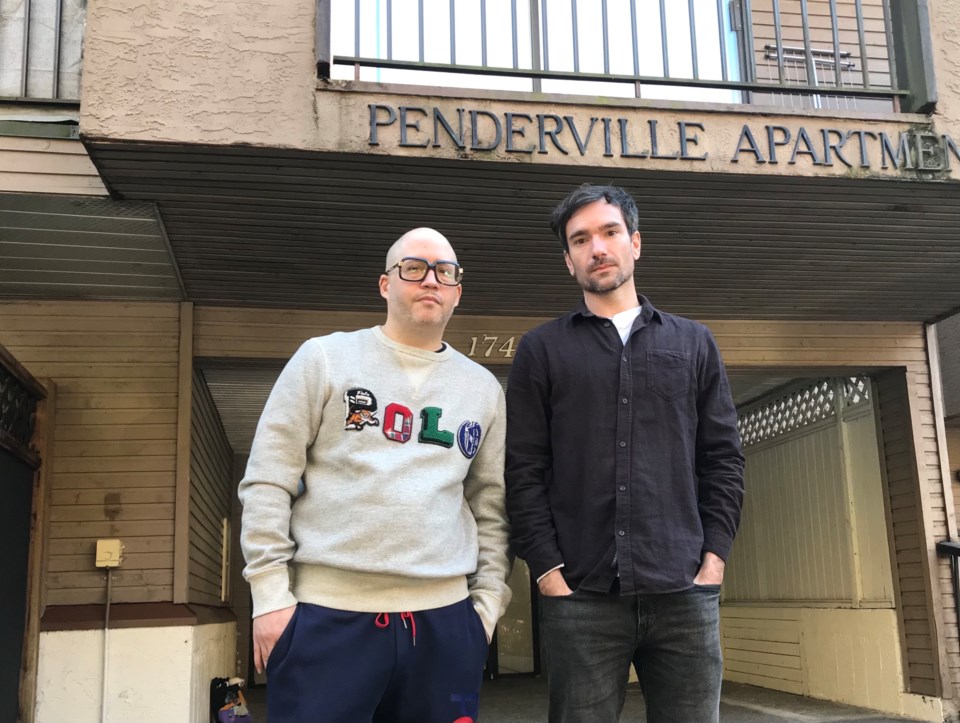Since tenants of four Vancouver apartment buildings protested against landlord Cressey Development Group over conditions of their units two weeks ago, the developer has doubled down on remediation efforts.
But this hasn’t quelled concerns over living conditions and transparency, and tenants from two more Cressey-owned properties are considering joining a coalition effort drawing attention to these issues, according to tenant Jesús Ron.
Protests came as tenants expressed concerns over pests, insects, mould, maintenance, a lack of emergency contact and problems with accessibility.
The problems that tenants say they experienced speak to larger problems in Vancouver when it comes to rental regulations, the rental tribunal system and a lack of protection for those who complain about landlords, according to experts and tenants who spoke to BIV.
Concerns over maintenance and safety are centred on Cressey’s Penderville, Eton, Graveley and Sandringham buildings in East Vancouver.
Two additional buildings, the McLean and Graham apartments, are in the early stages of joining the roughly year-old organized effort known as the Cascadia Renters Union (CRU).
Ron said Cressey has conducted inspections in the first four buildings since the Oct. 24 rally.
Cressey declined to confirm if these inspections took place and to speak about any of the specific issues alleged by tenants.

But the developer has hired a new assistant building manager who started training on Sept. 28, in addition to starting “immediate assessments and necessary repairs,” according to a statement from Scott Cressey, the company’s owner and president.
The issues alleged by the CRU shed light on the lack of a landlord “watchdog” or regulatory body that oversees maintenance issues, ensures that properties are maintained and tracks infractions or violations, said Robert Patterson, a lawyer at the non-profit Tenant Resource and Advisory Centre.
“It's an entirely unregulated industry. More and more tenants are realizing that they can start pushing for more regulation and some enforcement of the rules that doesn't just rely on tenants putting their necks on the line to try and get landlords to follow the law,” he said.
Patterson said that joining together as a collective provides “strength in numbers” and is a non-legal route for tenants to get their voices heard.
“People are so afraid of losing their homes now because there is no affordable housing out there,” he said.
“People aren't willing to risk their entire home and safety for that. In part, because we don't have adequate protections for tenants at the residential tenancy branch to protect themselves against retaliatory evictions.”
Ron said he went without power for a weekend in 2022 and was unable to get help immediately. In a statement to Glacier Media, Cressey Development Group said that the unit was inspected on the same day, and the issue resolved within one to two days.
“I started door-knocking and I saw that people have problems that were way more serious [than temporarily losing power].… That's how I got involved,” Ron said.
Tenants held a rally outside the developer’s offices last month to protest what the Vancouver Tenants Union – a separate organization providing support to the CRU – described as maintenance and safety issues building residents have been enduring for multiple years.
“Tenants very seldom assert their interests or rights in the way that we've seen with these kinds of protests or rent strikes. However, they are increasing and they're increasing because of the dire need to do something about the situation for tenants,” said Alexandra Flynn, an associate professor at the University of British Columbia and director of the Housing Research Collaborative.

The Vancouver Tenants Union said tenants declined to speak to Glacier Media for this story as they said they were concerned that speaking out may negatively affect their ability to secure housing with future landlords.
Meanwhile, Ron recalled an hour-long argument between CRU members and Cressey representatives when the Penderville building was being inspected.
“We were a little frustrated because they didn't want to engage with us collectively, they wanted to engage with the individual tenants. And we tried to work together with the tenants to have a CRU member present during the inspections,” said Ron.
Only tenants who lived in units being inspected were allowed to witness the inspections, he said.
Cressey Development Group said in a statement to Glacier Media that it maintains "individualized lease agreements with each of our tenants" and that "our practice of individually meeting with tenants not only safeguards their privacy but also enables us to efficiently address any concerns and aligns with the prescribed policy."
The company also said it was notified on two occasions of requests for a CRU member to accompany a tenant during an inspection. "If a tenant was personally present during the inspection and explicitly requested the presence of others, we accommodated such requests," reads the statement.
The CRU sent a letter to Cressey in early September, alleging the presence of maintenance and safety issues, which the separate Vancouver Tenants Union claims was signed by about 60 per cent of tenants within the four buildings.
The three-to-four-storey buildings were all built in the early 1980s. The Gravely building’s assessed land and building value was $17,337,000, with the McLean building at $14,490,000 as of July 2022, according to BC Assessment.
Cressey Development Group is a well-known developer in Metro Vancouver, with multiple condo projects that cater to luxury living.
The company owns hundreds of buildings that span across the commercial, condominium and rental real estate markets, according to Flynn.
"I express sincere empathy for this situation, which we take very seriously. We've acknowledged the tenants' concerns in the letter received on Sept. 11,” Scott Cressey said in a statement.
“We're committed to individual meetings with tenants to address concerns and prioritize repairs, and our team is actively co-ordinating meetings. Our unwavering commitment to providing a safe, healthy home aligns with adherence to the B.C. Residential Tenancy Act.”
Solutions to these issues are typically dealt with by the Residential Tenancy Branch (RTB), which resolves disputes between tenants and landlords.
Both Ron and another tenant, Chris Merpaw, said that tenants in the building have utilized this route in the past.
But Flynn and Patterson said that remedies on an individual basis, through the RTB, are not enough.
“It's expensive and there's currently a huge delay in the tenancy board hearing the complaints,” said Flynn. “And then if there is a remedy that's given, that's no guarantee that it's actually going to be enforced.”
Another a major issue is that many of the RTB’s decisions carry no precedence, Ron said.
Patterson added that these decisions can also be inconsistent depending on the arbitrator.
The whole experience illustrates how difficult it is to find a safe place to live in Vancouver, Merpaw said.
Mould issues at his Cressey-owned unit followed a separate incident at a rental unit not owned by Cressey, where Merpaw claimed he nearly died from carbon monoxide poisoning.
“This is probably systemic in our current economic situation,” Merpaw said.
Editor's note: This article has been updated to provide additional clarity and to include statements and information that were provided to Glacier Media by Cressey Development Group after the article was published. Multiple requests for information were made prior to publication.




-copy.jpg;w=120;h=80;mode=crop)